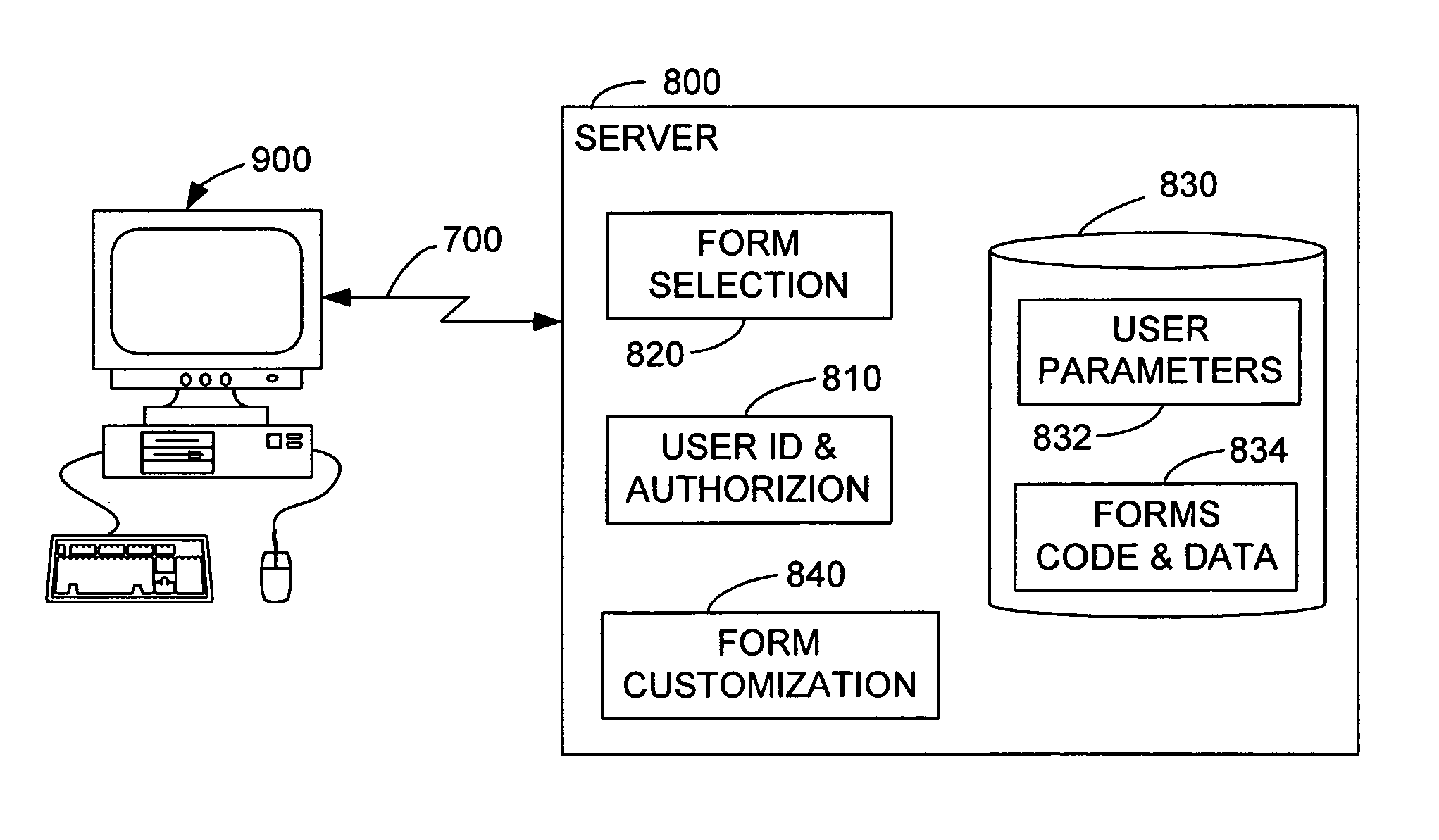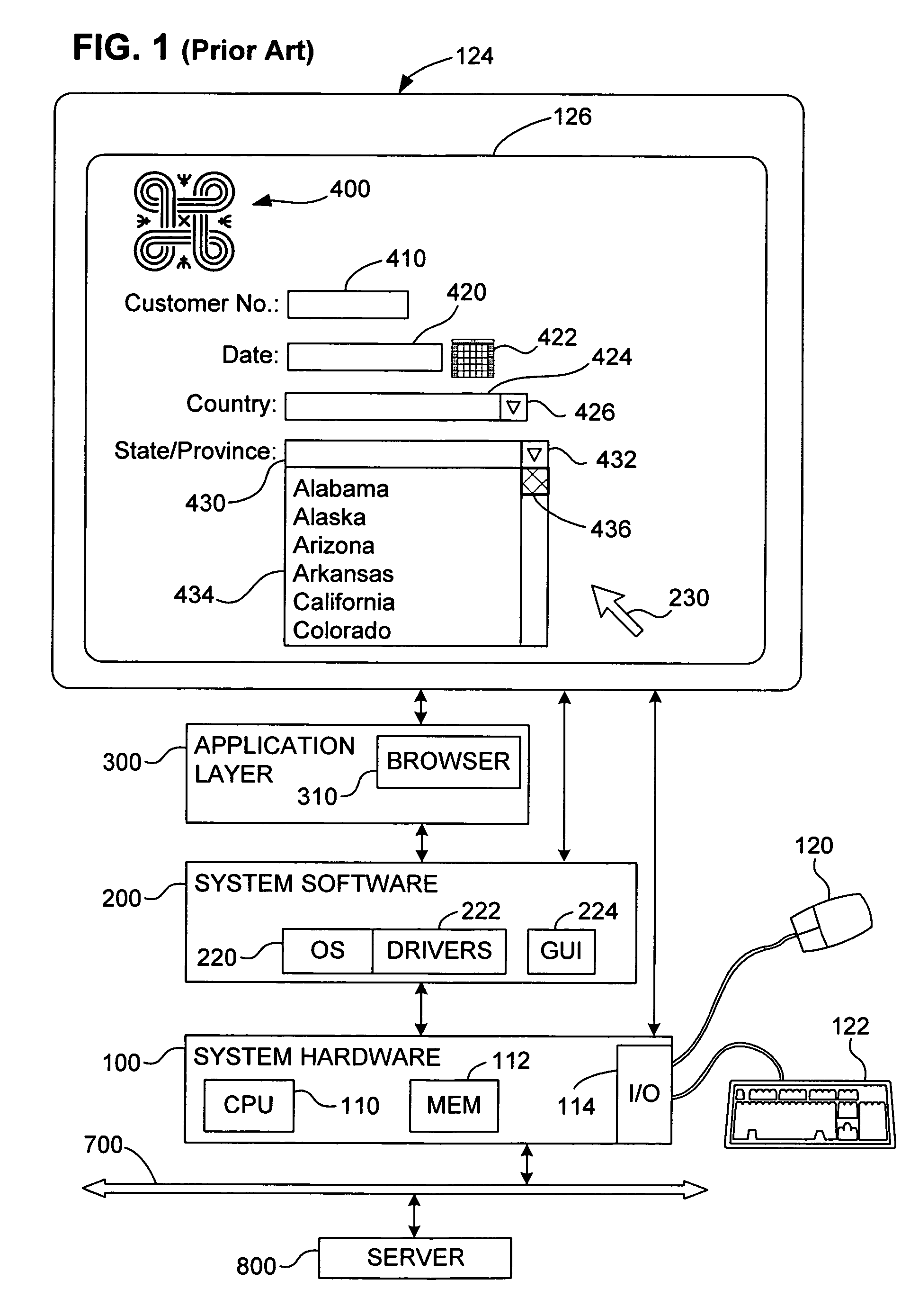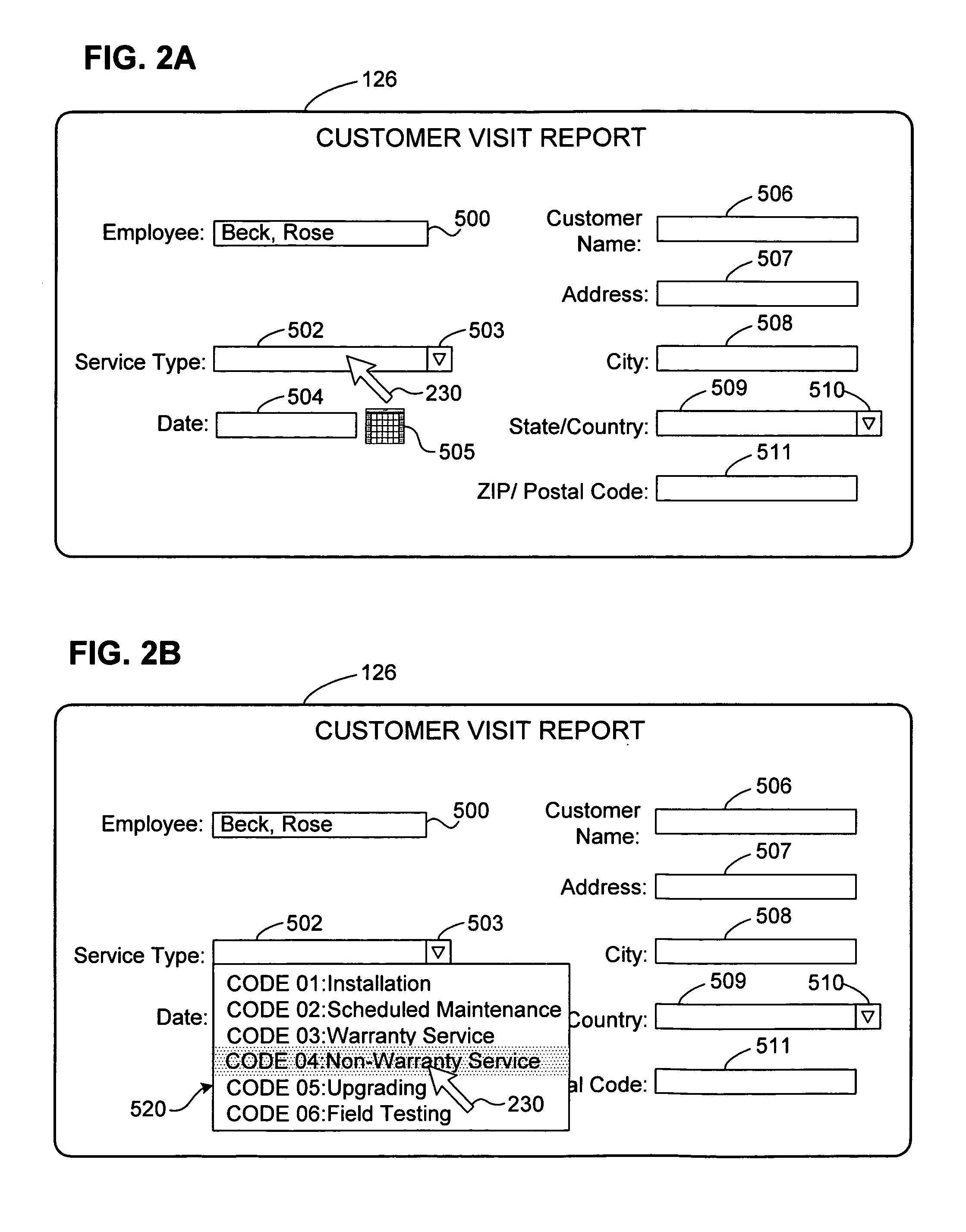Graphical input device with dynamic field width adjustment for input of variable data via a browser-based display
a dynamic field and variable data technology, applied in the field of graphical input devices, can solve the problems of insufficient space, inconvenient displaying of text input devices generated by browsers, and inconvenient use of text input devices
- Summary
- Abstract
- Description
- Claims
- Application Information
AI Technical Summary
Benefits of technology
Problems solved by technology
Method used
Image
Examples
Embodiment Construction
[0041] The invention provides a new graphical input device for allowing a user to select from one or more entries for input into an on-screen data entry field. The primary anticipated use of this new graphical input device is in the context of data input via a browser, which is to be sent over a network such as the Internet. The techniques that enable this preferred browser-based input device are also applicable, however, to other contexts, such as in spreadsheets and similar applications, in which data is input into cells (which form data entry fields) and where the cell width would otherwise need to be at least as great as the widest possible selectable entry.
[0042] The graphical input device according to the invention resembles a drop-down menu with a selection box, but the preferred embodiment of the invention has either, and preferably both of two unique characteristics. First, the displayed width of the data entry field need not be the same as the width of the longest possibl...
PUM
 Login to View More
Login to View More Abstract
Description
Claims
Application Information
 Login to View More
Login to View More - R&D
- Intellectual Property
- Life Sciences
- Materials
- Tech Scout
- Unparalleled Data Quality
- Higher Quality Content
- 60% Fewer Hallucinations
Browse by: Latest US Patents, China's latest patents, Technical Efficacy Thesaurus, Application Domain, Technology Topic, Popular Technical Reports.
© 2025 PatSnap. All rights reserved.Legal|Privacy policy|Modern Slavery Act Transparency Statement|Sitemap|About US| Contact US: help@patsnap.com



